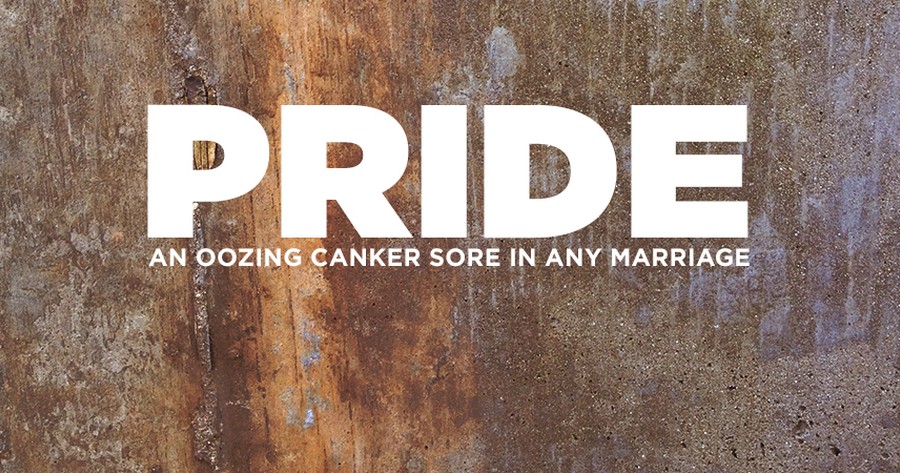In the early years of our marriage, if anyone would have suggested pride as an underlying root issue to our problems, my husband and I would’ve quickly defended our actions and pointed the finger at each other.
Pride will always be my natural default position unless I learn to recognize and battle it. By pride I mean a self-centered focus that views all of life through the grid of how this affects me.
If I place unreasonable expectations on my husband and then plunge into a pit of depression or a fit of anger when he doesn’t meet them, my reaction reveals a heart that thinks: I deserve bigger, better, more!
Pride is like an oozing canker sore in a marriage relationship; it’s always festering, and when it’s bumped, it spews its poison and pulsates with pain.
A woman whose pride is wounded can be dangerous. Her husband forgets her birthday . . . fails to notice her new hair style . . . is glued to the television while she aches for conversation . . . and her pride will not put up with this kind of treatment. She deserves better; she’ll make him pay! She lashes out in self-defense, determined to take him down.
Pride perverts a woman’s beautiful strength into a harsh, self-centered, demanding ugliness. You might recognize some of these pride patterns in your own life
- My desire to be loved consumes my thoughts and drives my emotions.
- I’m convinced if he really cared, I wouldn’t have to tell him what I want—he’d just know.
- I feel justified in handing out emotional punishment when he’s hurt me.
- I view my husband through the eyes of an “inspector” rather than the gracious eyes of a lover.
- I expect to be prized, adored, and served.
Pride is our default position because it’s our natural bent. We’re all hopelessly pride-filled. Our only way out is to recognize our great need for God to change our default position to one of humility. (More on that this Monday.)
How do you battle the default position of pride?
Adapted from Fierce Women: The Power of a Soft Warrior by Kimberly Wagner



Join the Discussion